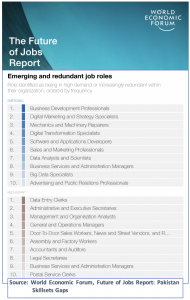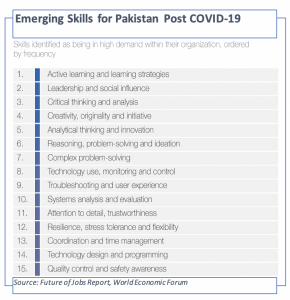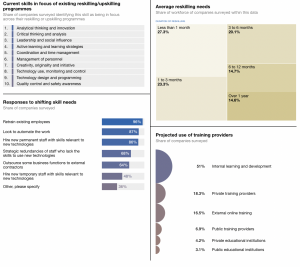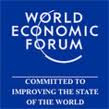New Skills Required in the New Era – Future of Jobs Report, World Economic Forum.
Emerging and Redundant Jobs - Pakistan
Skills through online knowledge platform, opportunity for tech enthusiasts to capture global business prospects. Extreme Commerce launches 150+ skills platform
the Future of Technology is more mobile and personal”
ISLAMABAD, PAKISTAN, August 5, 2021 /EINPresswire.com/ -- World Economic Forum in its Future of Jobs Report identifies new skill sets required in the post pandemic economic recovery for Pakistan. Digital Skills are the key to harness market appropriate opportunities.— Future of Jobs Report
Developing and enhancing human skills and capabilities through education, learning and meaningful work are key drivers of economic success, of individual well-being and societal cohesion. The global shift to a future of work is defined by an ever-expanding cohort of new technologies, by new sectors and markets, by global economic systems that are more
interconnected than in any other point in history, and by information that travels fast and spreads wide. Yet the past decade of technological advancement has also brought about the looming possibility of mass job displacement, untenable skills shortages and a competing claim to the unique nature of human intelligence now challenged by artificial intelligence. The coming decade will require purposeful leadership to arrive at a future of work that fulfils human potential and creates broadly shared prosperity.
Extreme Commerce, Pakistan’s foremost institution working to grow in the arena of E-commerce and digital skills, while creating a learning platform for the “Jobs of Tomorrow”, Extreme Commerce has created interactive learning tools for the new generation of Entrepreneurs and Freelancers. As Pakistan’s foremost EdTech with a focus on e-commerce and digital skills, it aims to bring innovation and quality along with tech, altogether under the same roof and ultimately make Pakistan the hub for Tech practitioners.
Pakistan has been ranked as the 4th fastest growing markets in the world for freelancers, Pakistan is among the top five countries in the world when it comes to freelancing and generates a significant calculated amount of $0.5 billion entirely from freelancing.
Pakistan’s e-commerce industry grew tremendously during the COVID-19 pandemic, which is amongst the fastest growth globally. The progressively evolving entrepreneurs in the ecommerce industry are breaking the barriers of feudal mindset. The Future of Jobs Report by the World Economic Forum also signifies that new knowledge capital around jobs on Internet of Things (IoT), Artificial Intelligence and Deep Data Mining and Analysis are key to foster economic progress.
Extreme Commerce pursues to be the fulcrum of opportunity and potential via providing extension in income streams by making sales on international and national E-commerce platforms like Amazon, eBay, Shopify, Fiverr, Upwork, etc. with an aim to infuse $1 billion for each annum into the local economy.
To meet the global skills gap with Pakistani experts, Extreme Commerce has expanded its digital learning platform with (Video Boot Camp) VBC 150+. The organization has introduced more e-commerce and freelancing learning opportunities, with its Video Boot Camp revamped and enhanced to 50 additional courses to master the new challenges and opportunities.
Video Boot Camp 100 had an extensive range of e-commerce skills that enabled students to obtain sellable skills. But now the additional 150+ courses are designed to provide team building skills, soft skills, marketing, managerial and communication skills. With 50 additional courses comprised of ecommerce and digital skills & 60+ Zameen interviews, Extreme commerce is trying to make 2021 a remarkable year for big changes in the ecommerce industry of Pakistan.
Language has always been a barrier to entry for skill development. However, the extensive line of courses has been upgraded with SIX additional languages which will now help break past language obstructions. It has opened doors for fresh freelancers by providing them a detailed course on Fiverr and Upwork.
The VBC 150+ has stood out by introducing medical freelancing which is the newest addition to VBC. This offers a range of courses for health and fitness enthusiasts, nutritionists and practicing medical students. Understanding data analysis on medical related platforms is one of the most demanding skill globally. Human wellbeing has been identified as one of the major challenges for humanity in the COVID-19 pandemic, where the medical data has opened new prospects for information technology evangelists. Creating new pathways for emerging technologies to benefit the society at large.
The new paradigm of algorithms has automated businesses and can impact the job markets greatly, however this has created opportunities for freelancers to generate new models for business development and service delivery. The VBC has introduced a revamped program of digital marketing and multimedia as well which offers a new spectrum of skills. In Digital marketing there’s Lead generation, Chatbot & Many chat kind of courses which helps and guides all Entrepreneurs, Freelancers, Digital Marketers in general.
As the Future of Jobs Report identifies the Future of Technology is more mobile and personal, Extreme Commerce has launched the Video Boot Camp on mobile App and Play stores. The New VBC mobile app is ready to roll out with 150 courses and 60 Zameen on Android and iOS. The new 150+ courses are income generating streams that are to rewrite the fate of Pakistan’s economy. This will not only boost the economy but also reduce the unemployment rate.
Extreme Commerce is Pakistan’s first EdTech start up with a sole focus on skills development and capacity building within the ecommerce and digital arena. Founded in 2017, it is the largest community of its kind in Pakistan, with well over 750,000 members to date and with over 100+ courses and income streams to choose from. We estimate that by 2025, our community will be 1 million strong, generating well over $1 billion in inward remittance for Pakistan.
Mishal Pakistan and Extreme Commerce are working jointly to improve the awareness on the skills required for the “Jobs of Tomorrow”. Mishal Pakistan is the country Partner Institute of the New Economy and Societies Platforms, World Economic Forum.
Extreme Commerce, Pakistan’s foremost institution working to grow in the arena of E-commerce and digital skills, while creating a learning platform for the “Jobs of Tomorrow”, Extreme Commerce has created interactive learning tools for the new generation of Entrepreneurs and Freelancers. As Pakistan’s foremost EdTech with a focus on e-commerce and digital skills, it aims to bring innovation and quality along with tech, altogether under the same roof and ultimately make Pakistan the hub for Tech practitioners.
Pakistan has been ranked as the 4th fastest growing markets in the world for freelancers, Pakistan is among the top five countries in the world when it comes to freelancing and generates a significant calculated amount of $0.5 billion entirely from freelancing.
Pakistan’s e-commerce industry grew tremendously during the COVID-19 pandemic, which is amongst the fastest growth globally. The progressively evolving entrepreneurs in the ecommerce industry are breaking the barriers of feudal mindset. The Future of Jobs Report by the World Economic Forum also signifies that new knowledge capital around jobs on Internet of Things (IoT), Artificial Intelligence and Deep Data Mining and Analysis are key to foster economic progress.
Extreme Commerce pursues to be the fulcrum of opportunity and potential via providing extension in income streams by making sales on international and national E-commerce platforms like Amazon, eBay, Shopify, Fiverr, Upwork, etc. with an aim to infuse $1 billion for each annum into the local economy.
To meet the global skills gap with Pakistani experts, Extreme Commerce has expanded its digital learning platform with (Video Boot Camp) VBC 150+. The organization has introduced more e-commerce and freelancing learning opportunities, with its Video Boot Camp revamped and enhanced to 50 additional courses to master the new challenges and opportunities.
Video Boot Camp 100 had an extensive range of e-commerce skills that enabled students to obtain sellable skills. But now the additional 150+ courses are designed to provide team building skills, soft skills, marketing, managerial and communication skills. With 50 additional courses comprised of ecommerce and digital skills & 60+ Zameen interviews, Extreme commerce is trying to make 2021 a remarkable year for big changes in the ecommerce industry of Pakistan.
Language has always been a barrier to entry for skill development. However, the extensive line of courses has been upgraded with SIX additional languages which will now help break past language obstructions. It has opened doors for fresh freelancers by providing them a detailed course on Fiverr and Upwork.
The VBC 150+ has stood out by introducing medical freelancing which is the newest addition to VBC. This offers a range of courses for health and fitness enthusiasts, nutritionists and practicing medical students. Understanding data analysis on medical related platforms is one of the most demanding skill globally. Human wellbeing has been identified as one of the major challenges for humanity in the COVID-19 pandemic, where the medical data has opened new prospects for information technology evangelists. Creating new pathways for emerging technologies to benefit the society at large.
The new paradigm of algorithms has automated businesses and can impact the job markets greatly, however this has created opportunities for freelancers to generate new models for business development and service delivery. The VBC has introduced a revamped program of digital marketing and multimedia as well which offers a new spectrum of skills. In Digital marketing there’s Lead generation, Chatbot & Many chat kind of courses which helps and guides all Entrepreneurs, Freelancers, Digital Marketers in general.
As the Future of Jobs Report identifies the Future of Technology is more mobile and personal, Extreme Commerce has launched the Video Boot Camp on mobile App and Play stores. The New VBC mobile app is ready to roll out with 150 courses and 60 Zameen on Android and iOS. The new 150+ courses are income generating streams that are to rewrite the fate of Pakistan’s economy. This will not only boost the economy but also reduce the unemployment rate.
Extreme Commerce is Pakistan’s first EdTech start up with a sole focus on skills development and capacity building within the ecommerce and digital arena. Founded in 2017, it is the largest community of its kind in Pakistan, with well over 750,000 members to date and with over 100+ courses and income streams to choose from. We estimate that by 2025, our community will be 1 million strong, generating well over $1 billion in inward remittance for Pakistan.
Mishal Pakistan and Extreme Commerce are working jointly to improve the awareness on the skills required for the “Jobs of Tomorrow”. Mishal Pakistan is the country Partner Institute of the New Economy and Societies Platforms, World Economic Forum.






















